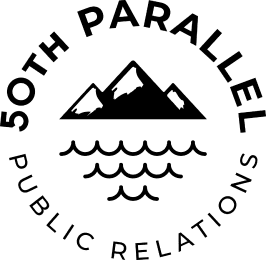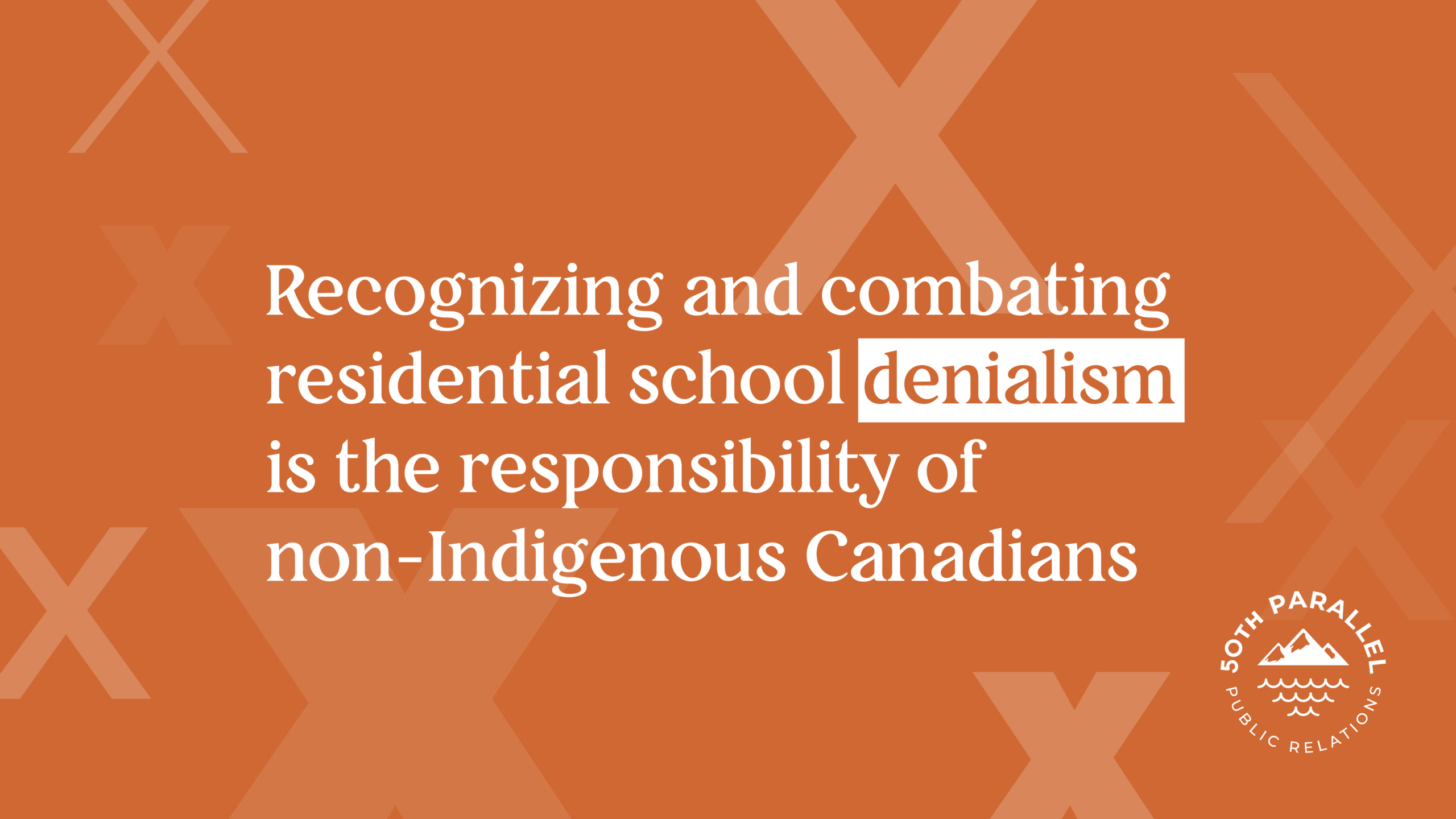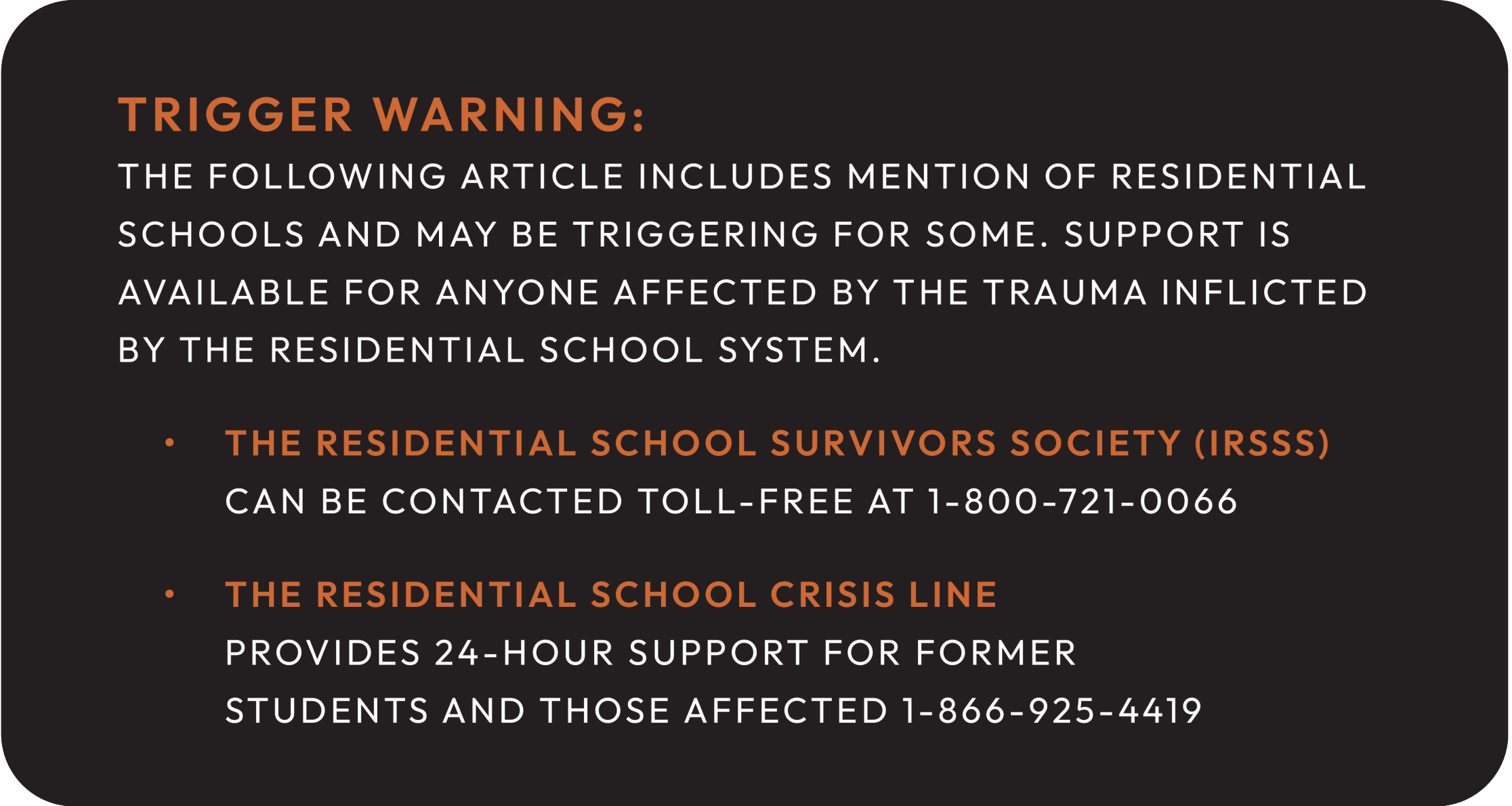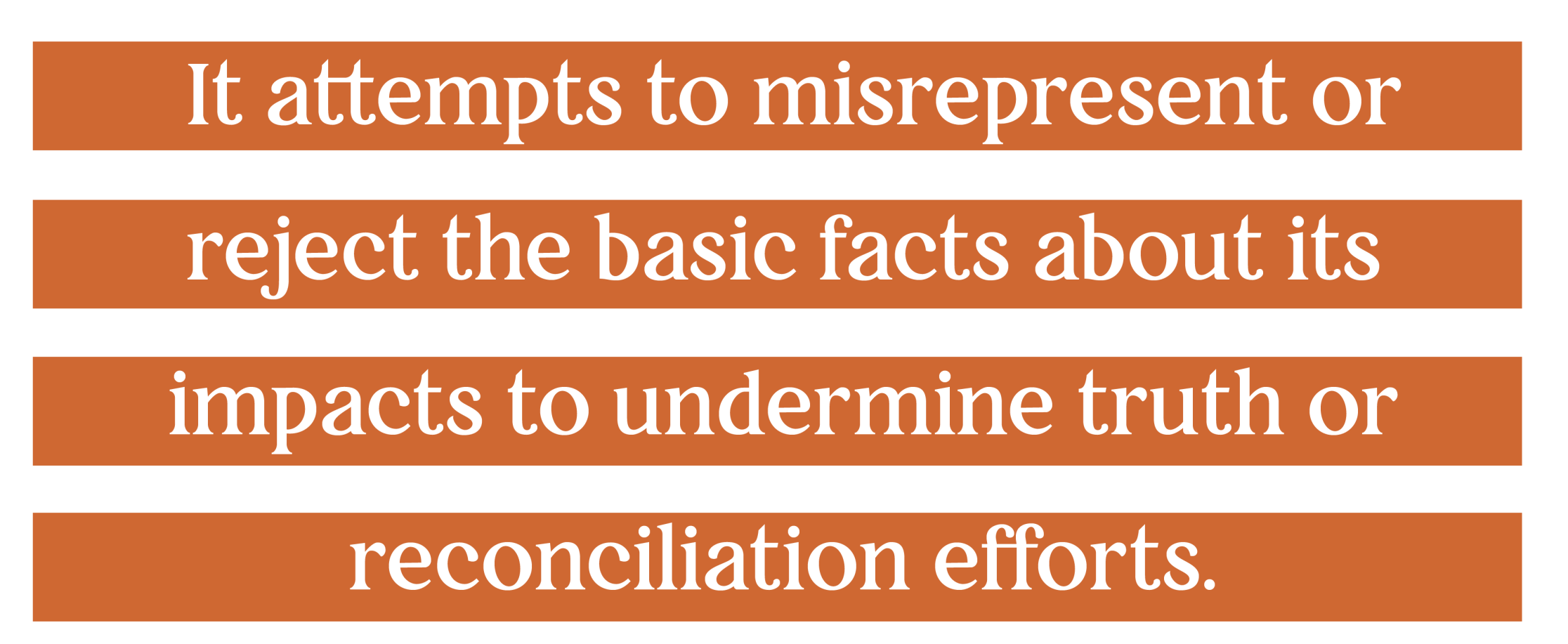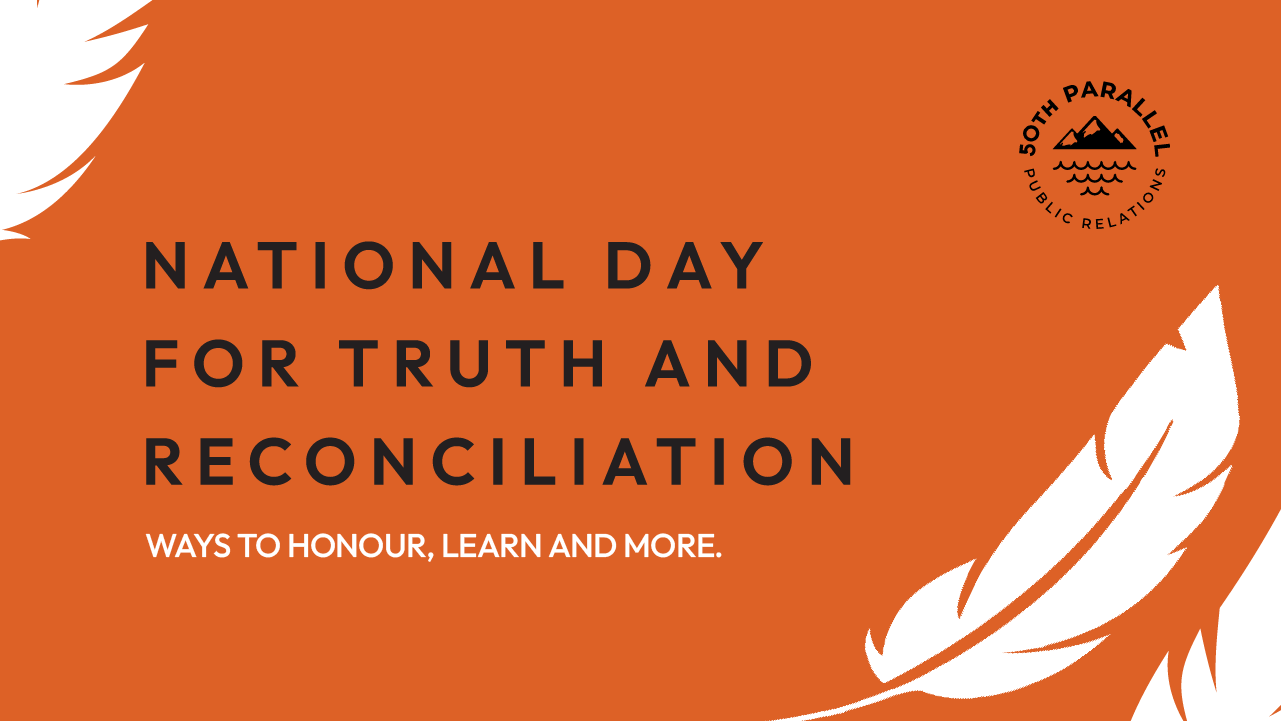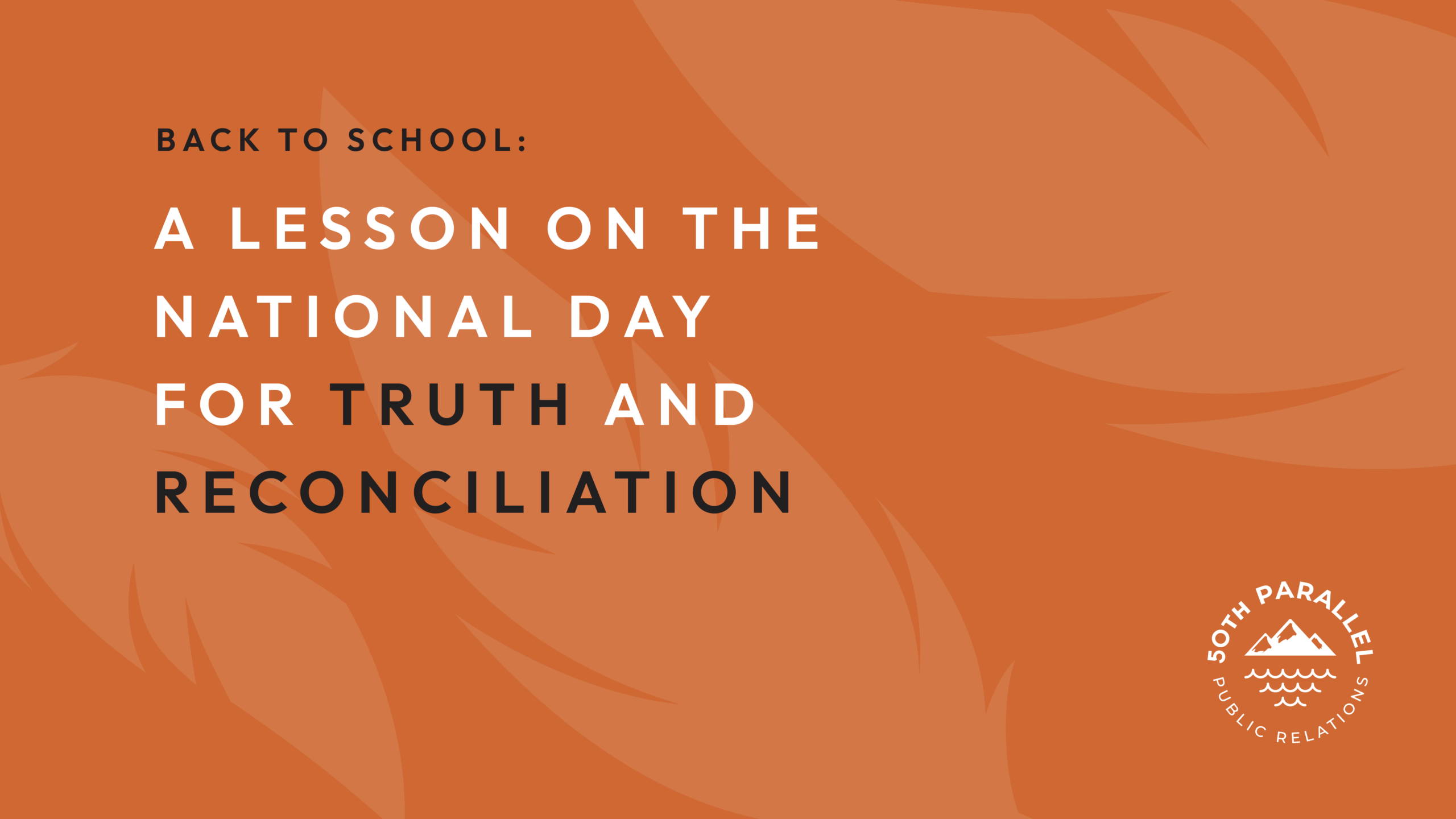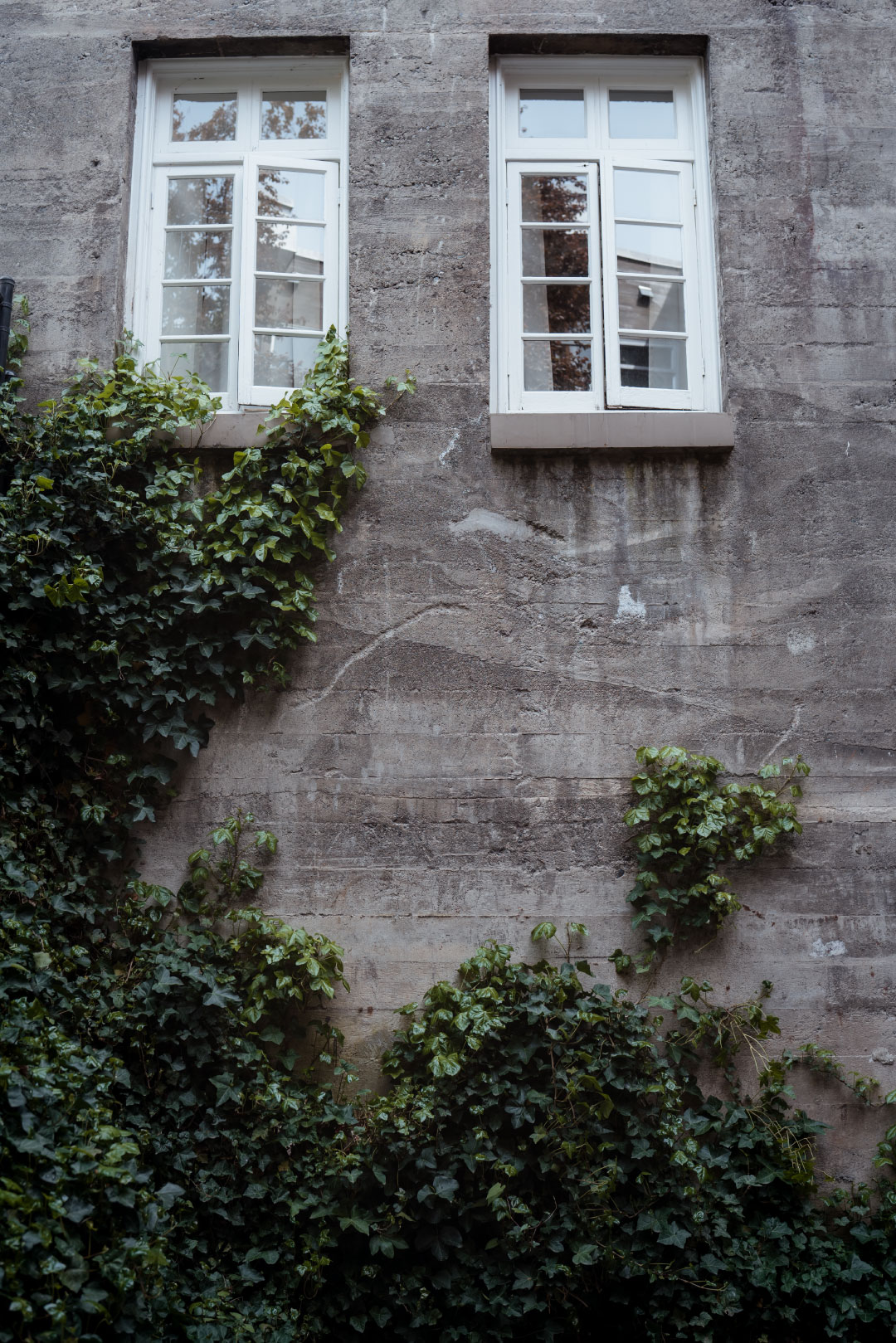When Tk’emlúps te Secwépemc announced 215 unmarked graves at the former Kamloops Indian Residential School in the BC Interior, it received international attention. Since then, many First Nations and Indigenous communities have undertaken similar work on their territories.
It’s difficult work for all of those involved and the results are emotional for survivors, their loved ones and community members. After communities announce the initial findings of their scanning and research projects, dozens of articles are published in the weeks that follow, as well as a number of statements of support from government organizations, religious institutions and public service agencies. But dispersed throughout the overwhelmingly positive media coverage is a concerning growing trend – residential school denialism.
Residential school denialism doesn’t deny the existence of residential schools, nor does it ignore that harms and abuses occurred.
It’s an attempt to protect the colonial status quo. Murray Sinclair, former Canadian senator and chairman of the Truth and Reconciliation Commission, said residential school deniers are a major obstacle to achieving reconciliation in Canada.
Indeed, Elder Barbara Cameron, a residential school survivor, provided a witness testimony to the Standing Senate Committee on Indigenous Peoples in March 2023. Her words were captured in the Independent Special Interlocutor’s Interim Report, released in June 2023. This is what she said:
“The more that residential schools are in the headlines, the more backlash we seem to be facing. There are people out there who continue to deny this truth, who don’t want to admit that the schools inflicted these harms on Indigenous peoples and that the schools were purposely designed to do that. These deniers look at the accomplishments of individual Survivors and, instead of acknowledging the strength and resilience of those individuals, they say, ‘Look at all the good the residential school did for you.’ What they don’t see is the intergenerational loss of our source of being, the loss of our connection to all Creation, our loss of our languages, our cultures, our identity amongst our families and our communities.
These deniers ignore the established facts about residential school history, including the documented reality that most children who died in the schools were never returned to their families. Instead, the deniers called the search for unmarked burials ‘fake news,’ and it has really become more and more common in the news to hear ‘fake news.’ These residential school deniers are not representative of most Canadians. We know this. Denialism is a fringe movement, but it includes individuals with power and influence to be quoted in the media and abroad. And we all know by now how fringe movements can gain momentum if they are given enough attention and airtime.”
In an article for The Tyee, Niigaan Sinclair and Sean Carliton say residential school denialism discourages survivors from telling their truth, weakens public confidence in reconciliation efforts and protects the colonial status quo and guilty parties.

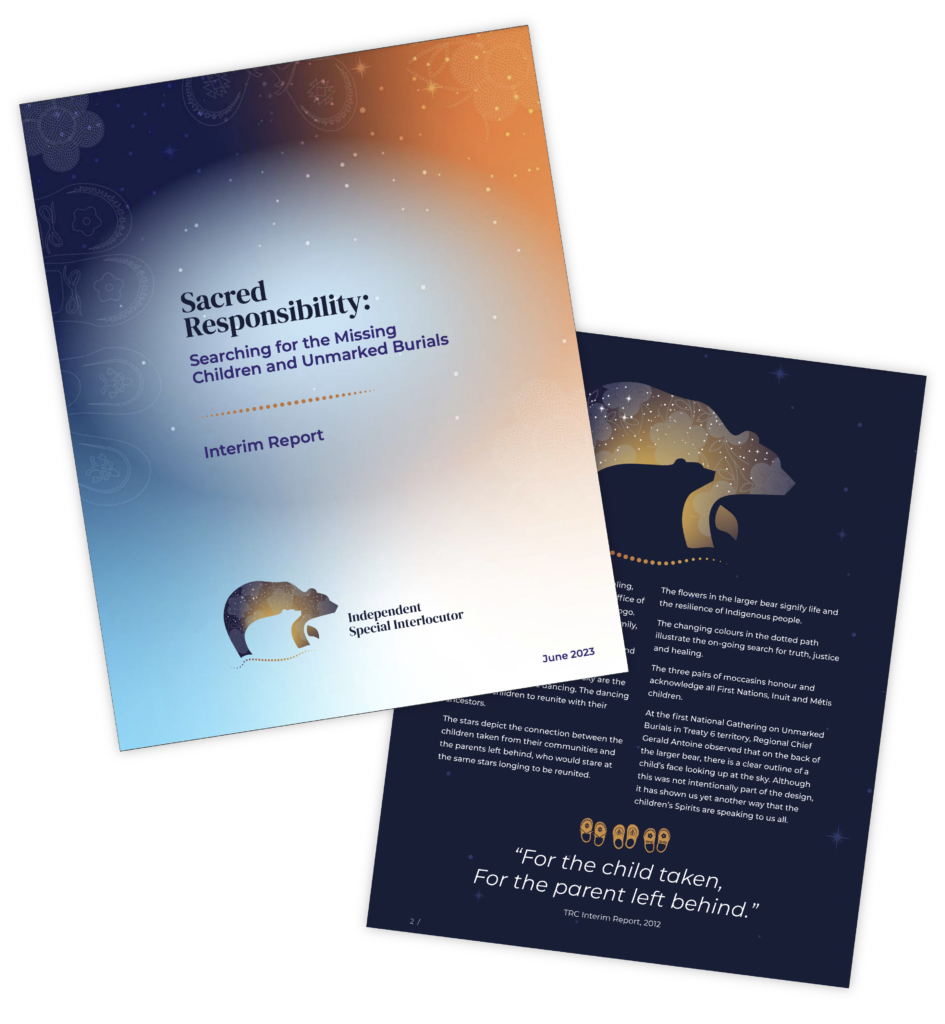
There is overwhelming evidence, both documented and testimonial, of the multigenerational and systemic abuses by the residential school system. Researchers and historians agree that a big part of combating residential school denialism is through education. It’s about getting to a point where non-Indigenous people are identifying and challenging denialists. In doing so, it takes the burden away from survivors and Indigenous communities so they can speak their truth and focus on healing.
Ultimately, it’s the responsibility of non-Indigenous Canadians to educate as residential school denialism is a uniquely non-Indigenous problem.

- Familiarize yourself with the common misconceptions deniers use to spread misinformation. An op-ed writtenby two scholars in the field of Indigenous studies provides a glossary of some common distortions denialists use and how to combat them.
- Learn more about the residential school system. There are many resources available that provide the history and first-hand knowledge of the abuse and trauma experienced by hundreds of survivors and loved ones. We recommend: TRC’s 94 Calls to Action; University of Alberta’s free online Indigenous Canada course; National Centre for Truth and Reconciliation at the University of Manitoba.
- Be mindful of the language you use when talking about sensitive topics, including unmarked graves at former residential school sites. Terms such as “mass grave” are fuel for denialists.
- Look into and understand the process being undertaken by dozens of Indigenous communities to investigate potential gravesites. We recommend checking out the Interlocutors Interim Report.
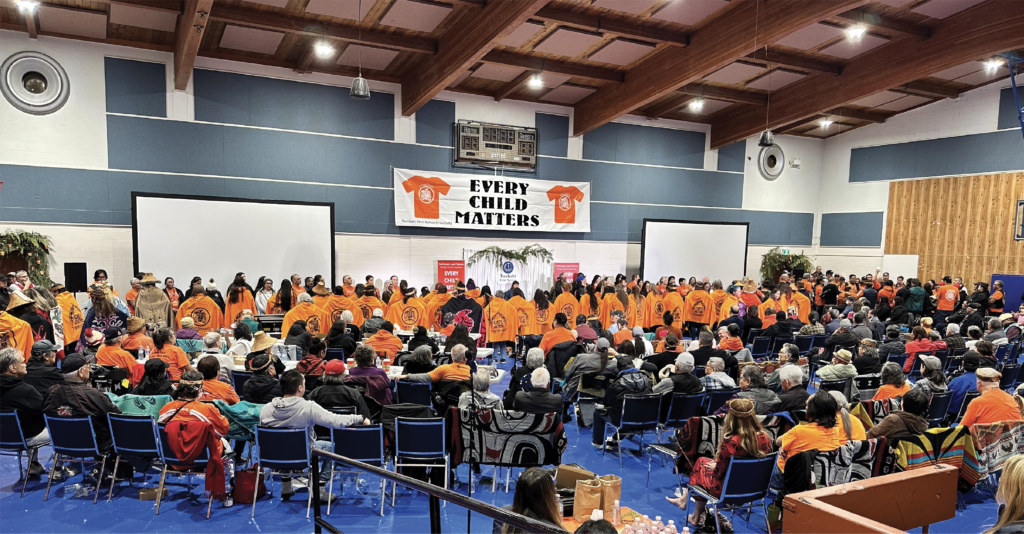
ʔuuʔatumin yaqckʷiimitqin (Doing it for our Ancestors) Phase 1 initial findings announcement
The sacred work being done by First Nations and Indigenous communities is not only a path towards healing for survivors and their families, but is a key part of the reconciliation process – there cannot be reconciliation without truth. Non-Indigenous Canadians have a responsibility to educate themselves and their children on Indigenous history, while fostering stronger relations with Indigenous Peoples. The focus shouldn’t be on trying to change the minds of residential school deniers, but rather to challenge and discredit them and the strategies they use to undermine progress and spread harmful misinformation.
